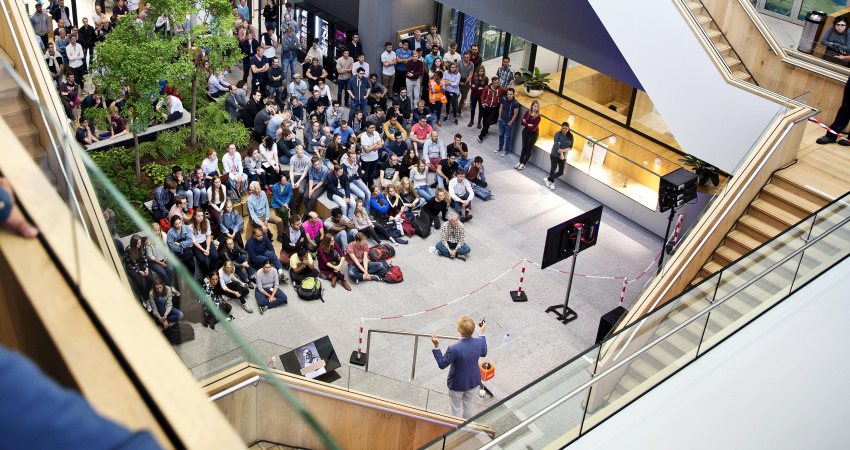Frequently asked questions

The concept of trust can be broken down into different aspects. Two of these are whether scientists can be trusted to deal scrupulously with their research, and whether they can be trusted to work independently. To examine the public’s level of trust in science, our survey includes questions about three aspects of trust:
- competence,
- reliability
- and integrity.
The Dutch generally have a positive view of scientists. Almost 4 out of 5 (77%-79%) Dutch persons think that scientists work carefully, are experts in their field, and can be trusted even though they do not always agree with each other.
Doubts about the integrity of scientists increase as soon as they work for government or business; a proportion of the Dutch believe that scientists will modify their research to get the results that government (34%) or the business (41%) wants.
The Dutch also do not have a positive view of government and business within the context of contract research:
- 57% think that government does not really know how to make use of research results in its policy
- a large majority think that government and businesses will make use of research results only if those results support their own ideas
- and about 60% believe that government and business will try to obstruct unwanted results.
This report covers our third survey of public trust in science. We distributed a questionnaire to a representative sample of the Dutch population in 2018, following earlier surveys in 2012 (in cooperation with the WRR) and 2015. We used the basic questionnaire developed in 2012 as a basis for the 2015 and 2018 surveys as well.
All three surveys used NIPObase as the source of data for the random sample. NIPObase is a database of households willing to participate in surveys conducted by Kantar Public and Kantar TNS.
The database from which we draw our sample has data on approximately 140,000 individuals; about 120,000 of them are 18 years of age or older. The respondents complete the survey online. We recruit the panel mainly by means of traditional research instruments. Kantar Public queries individuals’ willingness to take part in the panel in face-to-face and telephone interviews. Each of the surveys has made use of random sampling, so that every group in society has the same chance of being included in the sample. Respondents cannot register with NIPObase themselves.
The survey data was collected using Computer Assisted Web Interviewing. The sample consisted of N=1,331 persons, the aim being to obtain a sample representative for the Dutch population in terms of gender, age, household size, education, social class, and region. The sample was based on reference data taken from the 2017 Golden Standard (Gouden Standaard) and consists of persons 18 years of age and older.
Of the 1,331 panel members that we approached, a total of 838 completed the questionnaire.
As in previous years, we see that trust in science is related to educational level. High-educated individuals trust science more than low-educated ones.
In analysing the results of the survey, we noted a difference in trust between men and women of differing ages. There is not much difference in the under-50 age categories. In the group of respondents older than 50, women’s average scores for trust in science are lower than men’s. We see a similar trend in the data generated by the 2012 and 2015 Rathenau surveys on trust in science. This difference remains significant even after correcting for the existing difference in educational level between men and women of that age, or for the difference in scientific knowledge.
More results can be found under the tab 'Conclusions'.
